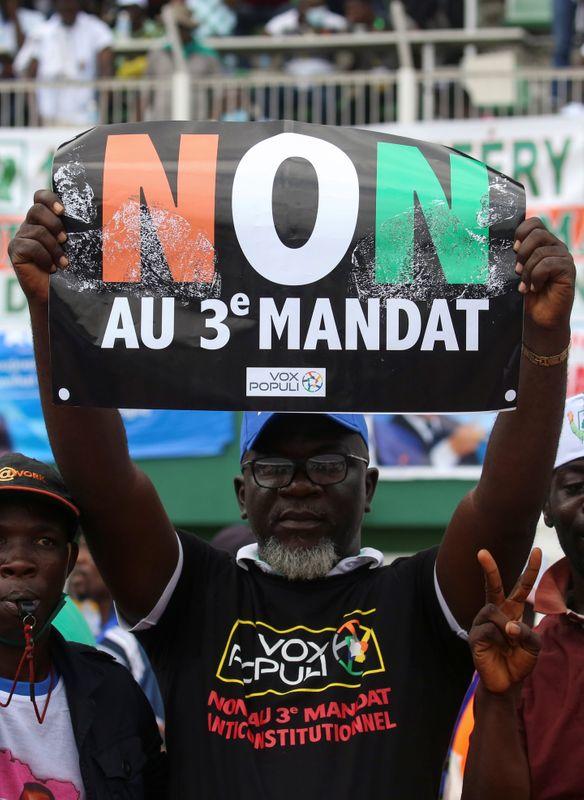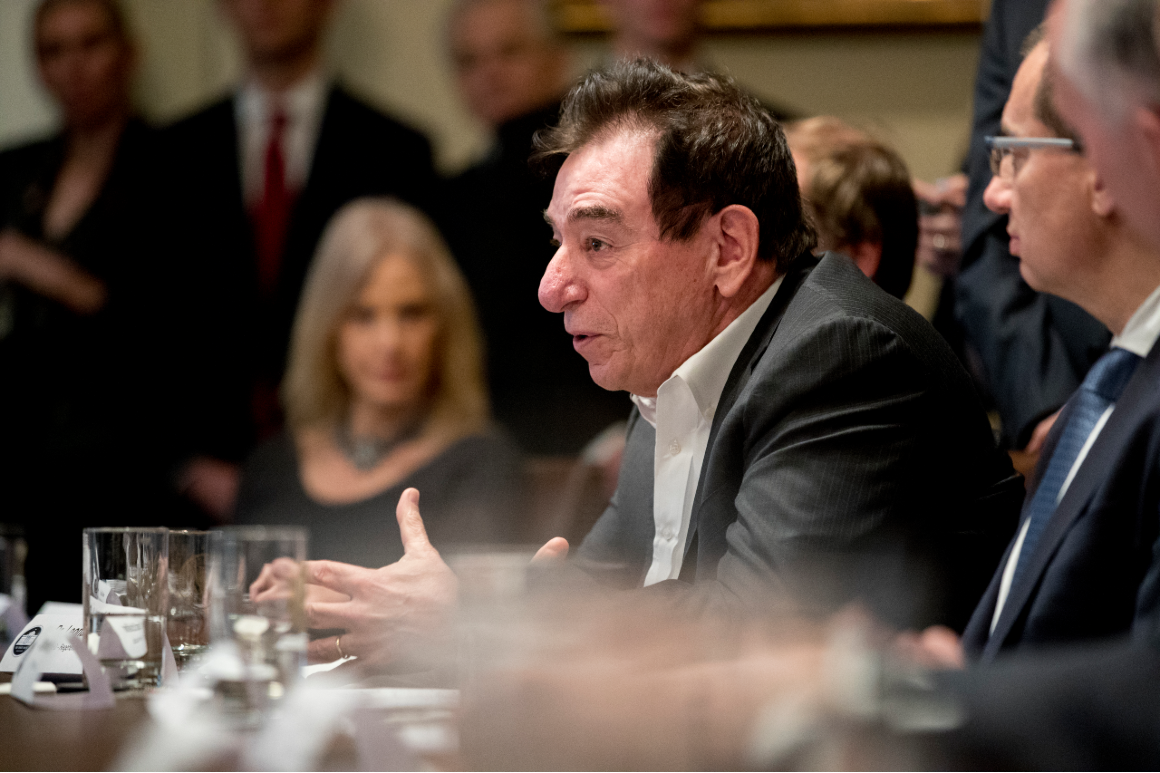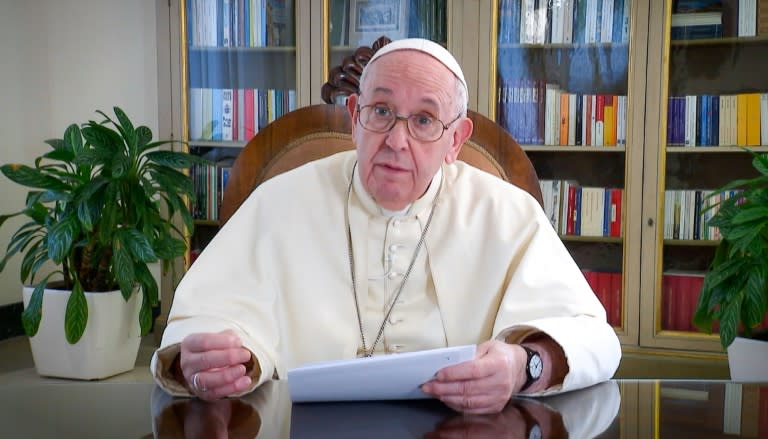The rise of Gen Z could foretell the fall of Trumpism
By Laura Barrón-López, Politico•October 11, 2020
The evidence all points in one direction: Americans born after 1996, known as Generation Z, could doom not only Trumpism but conservatism as the country currently knows it.
Members of Generation Z who are of voting age — 18- to 23-year-olds — want more government solutions. They rank climate change, racism and economic inequality consistently in their top issues, according to polls, and they participated in greater numbers during their first midterm (in 2018) than previous generations did theirs.
As Republicans espouse “family values” and “religious liberty,” data finds that Generation Z, also known as Zoomers, are less likely than older Americans to be a member of a religious group — 4 in 10 don’t affiliate — and appear to care more about systemic racism and an equitable future than upholding traditional nuclear family structures, based on polling of their policy priorities.
To members of Generation Z, who have come of voting age in the past five years, President Donald Trump and Republicanism are one and the same. And most pollsters and experts on voting behavior agree that patterns are developed early — how a person votes in their early years, and the impressions they form from high school into young adulthood, stick with them in one form or another for decades.
Generation Z’s leftward tilt is already impacting the presidential race. A Harvard Youth Poll conducted between Aug. 28 and Sept 9, found Joe Biden’s support at (60 percent) among those aged 18 to 29 — ahead of Hillary Clinton’s (49 percent) in 2016 and Barack Obama’s (59 percent) in 2008.
For now, this generation remains a small part of the electorate. But as more Gen Zers reach voting age, they could force a different kind of conservatism to take root as Republicans compete for their votes, according to a POLITICO study of polling data and interviews with more than 15 experts. Gen Z’s beliefs in diversity, equality and social justice are likely to guide them for decades, pushing the Republican Party to either embrace a more inclusive, possibly libertarian message built around social and economic freedoms or lose with increasing regularity. Though some political prognosticators have viewed aging as a factor that could move younger generations toward Republicans eventually, there’s stronger evidence suggesting the imprint left on a given generation by early political encounters is more indicative of how they’ll vote over their lifetime than changes due to age.
“If you look at what the priorities are of younger voters, the Republican Party is really going to be at a crossroads in a few election cycles,” said Melissa Deckman, a Washington College political science professor who is writing a book about Generation Z, gender and political engagement. “The long-term trend is pretty clear: They definitely will guide our policies in a more leftward way going forward.”
As Trump-era Republicans double down on their appeals to a white base, Deckman said, the reality is “demographically, younger America looks very different than the base of the GOP.”
Most people who have studied the politics of Generation Z, and their older brother and sister millennials, say some version of the same thing: A political realignment is already underway, a realignment is coming, or that the opportunity exists for a seismic one driven by young voters.
By all accounts, the political ideology of Generation Z looks a lot like millennials — and millennials haven’t moved to the right as they’ve aged.
Pollsters, nonpartisan data scientists and former Republicans who’ve found themselves outside the party of Trump, told POLITICO that one of two things will happen. Either Republicans adapt, shifting their positions on climate change, racial injustice and social tolerance, or they lose. The cold assessment isn’t that different from the dire warnings of the 2012 Republican Party, which ultimately nominated a candidate four years later who took the opposite route, focusing on older white voters.
But the underlying threat posed by young people to the Republican Party is still there and the entrance of Generation Z into the electorate compounds it.
Deckman’s surveys of likely voters reveal that from 2019 to 2020 the percent of Generation Z women who identify as Democratic increased by 12 points from 57 to 69 percent. Women who identify as Republican or independent fell. Roughly half of Generation Z men identify as Democratic but a similar gender gap found among older voters exists within younger generations as well — more men within Generation Z are likely to identify as Republican than their female peers.
One of the defining differences between Gen Z and millennials is temperament. Generation Z is more combative, willing to engage in confrontation and unwilling to wait for change. When they first flexed their potential political power in the lead-up to 2018, gun control took center stage. Students from Marjory Stoneman Douglas High School led national marches and stormed Washington.

UNITED STATES - MARCH 25: David Hogg and Emma Gonzalez, survivors of the Marjory Stoneman Douglas High School shooting in Parkland, Fla., assemble on the East Front of the Capitol during a rally to organize letters to be delivered to congressional offices calling for an expansion of background checks on gun purchases on Monday, March 25, 2019. The Letters for Change event was held in commemoration of the one year anniversary of the March For Our Lives DC.
“Politicians who sit in their gilded House and Senate seats funded by the NRA telling us nothing could have been done to prevent this,” said Stoneman Douglas student Emma Gonzalez, then 17 years old. “We call BS.”
“No millennial would say that,” said Morley Winograd, co-author of three books about millennials with fellow Democrat and former pollster Michael Hais.
Winograd and Hais refer to Generation Z by a different name, “Plurals” or the “Pluralist Generation.” It’s inspired by one of the defining characteristics of the young Americans: their racial and ethnic diversity. Nearly 1 in 5 are Latino — a notable shift from millennials.
Diversity defines a generation
Gen Z is inclusive and intolerant of discrimination at similar if not higher levels than millennials, said Winograd. For instance, half of Gen Z says society isn’t accepting enough of people who don’t identify as a man or woman, according to Pew Research Center.
Winograd’s theory of realignment goes like this: It started in 2008 when Barack Obama dominated with young voters and people of color. Yes, Trump won eight years later by coalescing white voters, but that doesn’t refute the case, he said. From 1968 to 2008, Republicans were the dominant party, winning seven of the 10 presidential elections to Democrats' three. The next 40 years, Winograd and Hais predict, will see a parallel tilt toward Democrats.
The “underlying demographic change” that started in 2008 has continued, said Chase Harrison, professor of survey research at Harvard.
“For ethnically and racially diverse young people, there isn't a whole lot to see in the Republican Party,” Harrison said.
The Republican National Committee’s 2013 autopsy report after Mitt Romney’s loss to Obama is “ever more prescient,” he added. “The demographic change isn't going away.”
At the time, the report put the outlook for Republicans bluntly: “Young voters are increasingly rolling their eyes at what the Party represents, and many minorities wrongly think that Republicans do not like them or want them in the country. When someone rolls their eyes at us, they are not likely to open their ears to us.”
But Republicans‘ Senate domination in 2014, and Trump’s victory in 2016 — through a base strategy that doubled down on white grievance — made it easy for Republicans to forget all about that 2013 autopsy. As Stuart Stevens, a veteran Republican strategist for Romney and other leading Republicans, wrote in his book “It Was All a Lie,” the GOP has long sought victory by ignoring voters of color.
“After [Republican presidential candidate Barry] Goldwater carried only Southern states and received a record-low of 7 percent of the Black vote, the party faced a basic choice: do what was necessary to appeal to more nonwhite voters, or build a party to win with white voters,” Stevens wrote. “It chose the latter, and when most successfully executed a race-based strategy was the foundation to many of the Republican Party’s biggest victories, from Nixon to Trump. And fittingly, absent serious change, race will define the demise of the Republican Party to a regional, Sun Belt-based party.”
The historically diverse Generation Z following directly behind the similarly liberal generation of millennials could be the final straw — forcing the Republican Party to reshape its foundations or lose.
Kristen Soltis Anderson, a Republican pollster, has been warning about a possible realignment for the past decade. Republicans hoped that as millennials aged they would become more conservative through marriage, having kids, or homeownership. But as they’ve started doing those things, Soltis Anderson said, they haven’t moved in their political preferences.
“Millennials got older and they did not become markedly more Republican in the process, which was kind of the gamble Republicans had always made,” she said.
All the data Soltis Anderson has scoured over, she said, suggests Generation Z is “very similar” to millennials. But she argued there’s still time for Republicans to make connections with Gen Zers because they are “new” and not all of them have entered their voting years.
To do that, however, will require a major shift by Republicans.
“The Republican Party will face a reckoning perhaps as early as this November,” former Rep. Charlie Dent (R-Pa.) said. “Does Trumpism survive Trump?”
There are days Dent thinks “Republicans are on a demographic death march.” He’s worried that even if Democrats win the White House and flip the Senate, Republicans might continue to turn a blind eye to young voters. Republican lawmakers will say “we didn’t yell loud enough,” he said.
In Dent’s view, “the Republican Party has to become much more socially tolerant and sensible.” That means meeting young voters where they are on LGBTQ rights, marriage equality and climate change, he said. Dent told CNN in August that he’s voting for Biden.
As then-RNC Chair Reince Priebus said in the aftermath of Romney’s 2012 loss, “there’s no one solution” to get young voters and people of color to feel welcome in the party. “There’s a long list of them.”
They are more focused on concrete policy, and how far the policy goes in eradicating inequities, than they are tethered to any political party, religious, or corporate institution.
Former Rep. Carlos Curbelo (R-Fla.) sees Generation Z and its policy priorities as “warning signs for Trumpism” but not necessarily Republicans.
“Most millennial and Gen Z voters don't identify with the culture war-based paradigm that Trumpism proposes for the country,” Curbelo said. “If Trump loses there will be a vacuum in the Republican Party and who fills it and what ideas fill it will depend on whether or not Republicans can start courting young voters again, something they're not doing now.”
“Every day that the Republican Party embraces Trumpism is a day where they're losing young voters,” he added.
Climate change and BLM looms large
Since he lost his seat to a Democrat in 2018, Curbelo said, Republicans in Congress have been “evolving rapidly” on climate change “in Trump’s shadow.” Curbelo argued the trend of Republicans “accepting the science” is “irreversible.”
Trump, the leader of the party, and many people in his White House and across the GOP share his stated view that climate change is a “hoax.” And despite a push by House Minority Leader Kevin McCarthy earlier this year to introduce narrow and modest measures to combat climate change, a number of Republicans within the House opposed that effort and powerful GOP outside groups attacked it.
Generation Z, however, isn’t looking for half-measures.
Climate change is consistently one of the top three issues named by young people age 18-29, according to surveys conducted by Tuft’s Tisch College Center for Information and Research on Civic Learning and Engagement, or CIRCLE. And according to Pew Research Center, Gen Z and millennials are the most likely to see a link between human activity and climate change.
In the recent Harvard Youth Poll, the economy, coronavirus and racial justice were selected the most as the top three issues of those aged 18 to 24, followed closely by health care and climate change.
And more and more young Americans are participating in protests to express their policy wants. Protest participation among those 18 to 24 has increased, said Kei Kawashima-Ginsberg, director of CIRCLE. Participation went from 5 percent in 2016 to 16 percent in 2018 and then 27 percent in 2020, according to CIRCLE’s data, she noted. “The issue priorities among youth overall suggest that a lot of the energy and activism is focused on issues that are often supported by Democrats,” Kawashima-Ginsberg said.
The recent summer of Black Lives Matter protests against the killings of Black people by police could further entrench the views of Generation Z.
In a POLITICO/Morning Consult poll of members of Gen Z, support for Black Lives Matter remains high at 68 percent, with 51 percent strongly supporting the movement. By comparison, 54 percent of all registered voters support the BLM movement, with just 32 percent strongly backing it. Among older generations, only 26 percent of Gen X support the movement, and 44 percent of baby boomers, those born between 1946 and 1964. Similarly, 56 percent of Gen Z strongly agree that racism is a “major problem” in the country compared with 43 percent of Gen X and 39 percent of boomers.
The BLM movement has evolved from one that was predominantly Black just four years ago, to one that in 2020 became the largest multiracial movement in the country’s history. Terrance Woodbury, a Democratic pollster for HIT Strategies, views that evolution as one of “Black people versus the police” to a movement of “young people versus racism.”
BLM protests in 2020 are far more diverse but predominantly young. Republicans, Woodbury asserts, are “positioning racism as a partisan issue.”
“As long as Democrats are on the right side of the No. 1 issue for young people, they have an opportunity to attract those young people into the coalition,” he said.
Transgender rights strike a chord
Deckman, the Washington College professor, sees a similar collision course between Republicans and youth like Generation Z on issues of LGBTQ rights, transgender rights and countering the traditional values of the religious right.
Deckman said her surveys reveal that though a majority of Generation Z identify as cis-male and cis-female — meaning their gender identities match their sex assigned at birth — roughly 1 in 4 identify as queer, either transgender or “genderqueer.” A third of Gen Zers say they know someone who uses gender-neutral pronouns to refer to themselves and nearly 6 in 10 say forms or online profiles should allow more options than “man” or “woman,” according to Pew Research Center.
Though Trump says he’s pro-LGTBQ, boasting that he’s the first president to enter office as a supporter of marriage equality, his administration instituted a transgender ban in the military and revoked an Obama-era guidance protecting trans students in public schools. And days after a Supreme Court ruling in June provided workplace protections for gay, lesbian and transgender under federal civil rights law, the Trump’s Department of Health and Human Services moved to roll back health care protections for transgender people — a regulation blocked in August by a federal judge.
And many members of the religious right have made opposition to transgender rights a battle cry, opposing such policies in public schools across the country. Trump’s campaign didn’t announce an LGBTQ coalition until August and blamed the coronavirus as the reason for the delay.
Republicans’ idea of religious liberty, particularly as it relates to discrimination against LGBTQ people, said Deckman, “does not at all resonate with younger Americans.”
In the POLITICO/Morning Consult poll, 49 percent of voting-age Gen Z respondents identified as agnostic or atheist.
A realignment isn’t destiny
Broadly, Gen Z also views Republicans in Congress more unfavorably (51 percent) than Democrats in Congress (34 percent), according to the POLITICO/Morning Consult poll of voting age members of the youngest generation.
But while survey after survey has found that members of Generation Z identify far more as left of center, Democrats and progressive outside groups warn that a realignment won’t just magically manifest without a targeted effort.
Linnea Stanton, 21, Midwest regional director for March for our Lives, plans to vote for Biden despite having preferred Elizabeth Warren in the primary. But Stanton offered a stinging critique of the Biden campaign’s efforts to appeal to younger, more diverse, voters, saying they smacked of pandering.
“Biden played [the wildly popular Spanish-language song] ‘Despacito’ off of his phone at a rally — and that's the thing that went viral from his rally, not him talking about his policy points,” Stanton said. “I can tell you that [Kamala] Harris was wearing timbs [Timberland boots] off of the plane last week, but I can't tell you what she actually stands for.”
Stanton wants to see more from Harris on the “bold and holistic approach” she outlined as a presidential candidate on gun violence. Though Stanton is a registered Democrat, many members of her generation register as independents or unaffiliated — a decision pollsters ascribe to young voters’ aversion to institutions rather than a marker of their political persuasions.
About half of the young Americans, primarily of Gen Z, who registered to vote through NextGen America, a progressive group founded by billionaire Tom Steyer, selected no party preference. According to data provided by NextGen, from 2019 to 2020 roughly 51 percent of those they registered chose to be unaffiliated, 41 percent selected a Democratic affiliation, and 8 percent Republican. The group noted that its results could lean more Democratic as it actively tried to register more people during the primaries, which in some states are closed to independents.

Democratic vice presidential candidate Sen. Kamala Harris, D-Calif., arrives to speak at Shaw University during a campaign visit in Raleigh, N.C., Monday, Sept. 28, 2020. (AP Photo/Gerry Broome)
“The Democratic Party is going to have a lot of work to do over the next five, 10, 15 years to ensure they're giving these young people, a reason to put a D next to their name,” said Ben Wessel, executive director of NextGen America.
Jeff Weaver is well aware of the opportunity Generation Z presents for Democrats. And that’s what he sees it as: an opportunity, not destiny. Weaver, former senior adviser to Bernie Sanders’s presidential campaign, saw the senator’s support among young Americans remain strong even as they aged from 2016 to 2020.
“Gen Zers [are] the most progressive generation in a long time,” Weaver said. But Democrats will have to bring in and empower them within the party structure, he said, something not all local party chairs are keen on doing.
Weaver also offered a word of caution to Democrats who think a realignment is foretold. Not long after Obama won the White House in 2008, a pollster briefed chiefs of staff in the Senate; Weaver was one of them at the time. The pollster said the 2008 election marked a major shift in the electorate and predicted Republicans wouldn’t win the White House “for the next 25 years.”
“That's what they said, literally what they said,” Weaver recalled.
Obama’s strength with young voters, which propelled him over the edge in key states, undoubtedly “shows the power of being in coalitions with young people,” Weaver said. But “anyone who thinks it’s on autopilot is fooling themselves.”

















